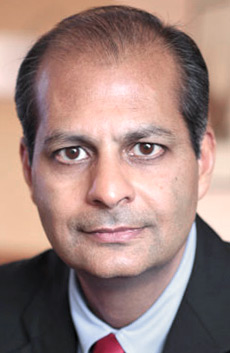

 What if we created a rule that gave everyone - good or bad - the right to hide their license plate, where they live, who they are, and just go incognito? What if we made it a right to walk into any building in the world, and simply say "No, thank you" when the security guards asked for one's identification? The criminals would celebrate, and we'd all be utterly alarmed. We would immediately be afraid for our personal safety. more
What if we created a rule that gave everyone - good or bad - the right to hide their license plate, where they live, who they are, and just go incognito? What if we made it a right to walk into any building in the world, and simply say "No, thank you" when the security guards asked for one's identification? The criminals would celebrate, and we'd all be utterly alarmed. We would immediately be afraid for our personal safety. more
 Today is Holocaust Remembrance Day. Today we remember that the Nazis rounded up Jews, Roma, political dissidents, and other "undesirables" using the best data and technology of the day and sent them off to concentration camps. We don't normally deal with this type of political reality in ICANN, but now is the time to do so. In 1995, the recently formed European Union passed the EU Data Protection Directive. more
Today is Holocaust Remembrance Day. Today we remember that the Nazis rounded up Jews, Roma, political dissidents, and other "undesirables" using the best data and technology of the day and sent them off to concentration camps. We don't normally deal with this type of political reality in ICANN, but now is the time to do so. In 1995, the recently formed European Union passed the EU Data Protection Directive. more
 The current revelations about Cambridge Analytica's use of Facebook data illustrate an important drawback to using a Facebook account as your business' online presence: Facebook knows and sells your customers! Millions of companies - especially small companies and start-ups - rely on a Facebook account for their online presence. On the surface, it seems like a great idea... more
The current revelations about Cambridge Analytica's use of Facebook data illustrate an important drawback to using a Facebook account as your business' online presence: Facebook knows and sells your customers! Millions of companies - especially small companies and start-ups - rely on a Facebook account for their online presence. On the surface, it seems like a great idea... more
 In the current debate over the balance between privacy and Internet safety and security, one of the unanswered questions is: "How will those responsible for protecting the public interest gain access to the non-public data in the WHOIS databases post General Data Protection Regulation (GDPR)?" In an attempt to prevent WHOIS data from going "dark," several community members have been working for the past weeks to create a model that could be used to accredit users and enable access to the non-public WHOIS data. more
In the current debate over the balance between privacy and Internet safety and security, one of the unanswered questions is: "How will those responsible for protecting the public interest gain access to the non-public data in the WHOIS databases post General Data Protection Regulation (GDPR)?" In an attempt to prevent WHOIS data from going "dark," several community members have been working for the past weeks to create a model that could be used to accredit users and enable access to the non-public WHOIS data. more
 ICANN has consistently said its intention in complying with the European Union's General Data Protection Regulation (GDPR) is to comply while at the same time maintaining access to the WHOIS domain name registration database "to greatest extent possible." On February 28, ICANN published its proposed model. Strangely, while ICANN acknowledges that some of the critical purposes for WHOIS include consumer protection, investigation of cybercrimes, mitigation of DNS abuse, and intellectual property protection, the model ICANN proposes provides no meaningful pathway to use WHOIS in those ways. more
ICANN has consistently said its intention in complying with the European Union's General Data Protection Regulation (GDPR) is to comply while at the same time maintaining access to the WHOIS domain name registration database "to greatest extent possible." On February 28, ICANN published its proposed model. Strangely, while ICANN acknowledges that some of the critical purposes for WHOIS include consumer protection, investigation of cybercrimes, mitigation of DNS abuse, and intellectual property protection, the model ICANN proposes provides no meaningful pathway to use WHOIS in those ways. more
 The European Commission recently released technical input on ICANN's proposed GDPR-compliant WHOIS models that underscores the GDPR's "Accuracy" principle - making clear that reasonable steps should be taken to ensure the accuracy of any personal data obtained for WHOIS databases and that ICANN should be sure to incorporate this requirement in whatever model it adopts. Contracted parties concerned with GDPR compliance should take note. more
The European Commission recently released technical input on ICANN's proposed GDPR-compliant WHOIS models that underscores the GDPR's "Accuracy" principle - making clear that reasonable steps should be taken to ensure the accuracy of any personal data obtained for WHOIS databases and that ICANN should be sure to incorporate this requirement in whatever model it adopts. Contracted parties concerned with GDPR compliance should take note. more
 There is an urgent need to clarify the GDPR's territorial scope. Of the many changes the GDPR will usher in this May, the expansion of EU privacy law's territorial scope is one of the most important. The GDPR provides for broad application of its provisions both within the EU and globally. But the fact that the GDPR has a broad territorial scope does not mean that every company, or all data processing activities, are subject to it. more
There is an urgent need to clarify the GDPR's territorial scope. Of the many changes the GDPR will usher in this May, the expansion of EU privacy law's territorial scope is one of the most important. The GDPR provides for broad application of its provisions both within the EU and globally. But the fact that the GDPR has a broad territorial scope does not mean that every company, or all data processing activities, are subject to it. more
 There is growing concern about how ICANN will comply with the EU General Data Protection Regulation (GDPR), whose enforcement sanctions come into force in May of 2018. How will ICANN comply with GDPR without unduly restricting global Internet users' access to the public WHOIS database? For nearly the past 20 years, Internet users, businesses, law enforcement and consumer protection agencies have relied on WHOIS as a necessary resource. more
There is growing concern about how ICANN will comply with the EU General Data Protection Regulation (GDPR), whose enforcement sanctions come into force in May of 2018. How will ICANN comply with GDPR without unduly restricting global Internet users' access to the public WHOIS database? For nearly the past 20 years, Internet users, businesses, law enforcement and consumer protection agencies have relied on WHOIS as a necessary resource. more
 In 2018, Internet Governance will be one of the top priorities in the geo-strategic battles among big powers. In today's world, every global conflict has an Internet-related component. There is no international security without cybersecurity. The world economy is a digital economy. And human rights are relevant offline as well as online. It is impossible to decouple cyberspace from the conflicts of the real world. more
In 2018, Internet Governance will be one of the top priorities in the geo-strategic battles among big powers. In today's world, every global conflict has an Internet-related component. There is no international security without cybersecurity. The world economy is a digital economy. And human rights are relevant offline as well as online. It is impossible to decouple cyberspace from the conflicts of the real world. more
 It is one of those surreal, ironic moments in time. This coming week, an event called the Internet Governance Forum (IGF) 2017 will be held at Geneva in the old League of Nations headquarters now known as the Palais des Nations. On its agenda is a workshop to discuss "A Digital Geneva Convention to protect cyberspace." If the IGF participants, as they enter the Palais grounds, simply look in the opposite direction south across the Place des Nations, they would see 100 meters away, a glass cube building provided by the Republic and Canton of Geneva. more
It is one of those surreal, ironic moments in time. This coming week, an event called the Internet Governance Forum (IGF) 2017 will be held at Geneva in the old League of Nations headquarters now known as the Palais des Nations. On its agenda is a workshop to discuss "A Digital Geneva Convention to protect cyberspace." If the IGF participants, as they enter the Palais grounds, simply look in the opposite direction south across the Place des Nations, they would see 100 meters away, a glass cube building provided by the Republic and Canton of Geneva. more
 A colleague was recently commenting on an article by Michele Neylon "European Data Protection Authorities Send Clear Message to ICANN" citing the EU Data Commissioners of the Article 29 Working Party, the grouping a determinate factor In the impending death of WHOIS. He is on point when he said: What the European Data Protection authorities have not yet put together is that the protection of people's mental integrity on the Internet is not solely due to the action of law enforcement... more
A colleague was recently commenting on an article by Michele Neylon "European Data Protection Authorities Send Clear Message to ICANN" citing the EU Data Commissioners of the Article 29 Working Party, the grouping a determinate factor In the impending death of WHOIS. He is on point when he said: What the European Data Protection authorities have not yet put together is that the protection of people's mental integrity on the Internet is not solely due to the action of law enforcement... more
 The argument for end-to-end encryption is apparently heating up with the work moving forward on TLSv1.3 currently in progress in the IETF. The naysayers, however, are also out in force, arguing that end-to-end encryption is a net negative... The idea of end-to-end encryption is recast as a form of extremism, a radical idea that should not be supported by the network engineering community. Is end-to-end encryption really extremist? Is it really a threat to the social order? more
The argument for end-to-end encryption is apparently heating up with the work moving forward on TLSv1.3 currently in progress in the IETF. The naysayers, however, are also out in force, arguing that end-to-end encryption is a net negative... The idea of end-to-end encryption is recast as a form of extremism, a radical idea that should not be supported by the network engineering community. Is end-to-end encryption really extremist? Is it really a threat to the social order? more
 In his book "The Darkening Web: The War for Cyberspace" (Penguin Books, New York 2017), Alexander Klimburg, an Austrian-American academic, gives "Internet Dreamers" a "Wake Up Call". He tells us the background-story why people start to be "anxious about the future of the Internet", as the recent ISOC Global Internet Report "Paths to Our Digital Future" has recognized. Klimburg refers to Alphabets CEO Erich Schmidt, who once said that "the Internet is the first thing that humanity has built that humanity does not understand". more
In his book "The Darkening Web: The War for Cyberspace" (Penguin Books, New York 2017), Alexander Klimburg, an Austrian-American academic, gives "Internet Dreamers" a "Wake Up Call". He tells us the background-story why people start to be "anxious about the future of the Internet", as the recent ISOC Global Internet Report "Paths to Our Digital Future" has recognized. Klimburg refers to Alphabets CEO Erich Schmidt, who once said that "the Internet is the first thing that humanity has built that humanity does not understand". more
 What happens when you open an email and allow it to display embedded images and pixels? You may expect the sender to learn that you've read the email, and which device you used to read it. But in a new paper we find that privacy risks of email tracking extend far beyond senders knowing when emails are viewed. Opening an email can trigger requests to tens of third parties, and many of these requests contain your email address. more
What happens when you open an email and allow it to display embedded images and pixels? You may expect the sender to learn that you've read the email, and which device you used to read it. But in a new paper we find that privacy risks of email tracking extend far beyond senders knowing when emails are viewed. Opening an email can trigger requests to tens of third parties, and many of these requests contain your email address. more
 The Equifax hack is understood to have compromised the personal data of over 140 million individuals. Although recent hacks of other businesses have affected more individuals, the personal data held by Equifax is significantly more sensitive than the data compromised in other hacks and includes Social Security numbers, birth dates, current and previous addresses and driver licence details... (Co-authored by Peter Davis and Brendan Nixon.) more
The Equifax hack is understood to have compromised the personal data of over 140 million individuals. Although recent hacks of other businesses have affected more individuals, the personal data held by Equifax is significantly more sensitive than the data compromised in other hacks and includes Social Security numbers, birth dates, current and previous addresses and driver licence details... (Co-authored by Peter Davis and Brendan Nixon.) more